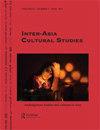写香港的自我:小说、文物与历史的创造——在邓启祥的作品与创作中:生动而逼真
IF 0.4
4区 社会学
Q4 ANTHROPOLOGY
引用次数: 0
摘要
香港过去10年动荡的政治史不断揭示出香港与中国大陆的复杂关系。这种关系的核心表现在三种相互竞争的意识形态之间的权力斗争——地方主义、中国民族主义和西方帝国主义——这三种意识形态在香港殖民统治期间一直盛行。本文试图提供另一种概念框架,在这种框架下,香港的殖民性及其与大陆的联系被更细微地看待。本文以香港本土作家邓启祥于2005年出版的小说《作品与创作:生动逼真》为中心,探讨《作品》如何在香港的历史发展中,对香港身份的知识生产范式的转变提出质疑。特别是,我的分析集中在叙述者如何有目的地在自我创造和现代人工制品之间建立平行,最终导致小说写作与现有的历史和身份话语之间的平行。这种呈现香港历史的方式,不仅让人注意到植根于上述权力结构的现有身份话语的不足,也让人注意到以一种永远二分的方式想象香港未来的危险。尽管《作品》是在二十一世纪初写的,但正如本文最终试图证明的那样,它对香港正在进行的政治斗争做出了深刻的贡献。本文章由计算机程序翻译,如有差异,请以英文原文为准。
Writing the Hong Kong self: fiction, artifacts and the making of history in Dung Kai-cheung’s Works and Creation: Vivid and Lifelike
ABSTRACT Hong Kong’s tumultuous political history over the last decade has continuously shed some light on the city’s complicated relationship with the Chinese mainland. At its core, this relationship is manifested in a nexus of power struggles between three contending ideologies—localism, Chinese nationalism and Western imperialism—that has prevailed all through Hong Kong’s colonial rule. This paper attempts to offer an alternative conceptual framework under which Hong Kong’s coloniality and its connection to the mainland are viewed with more nuances. Centering on the Hong Kong native writer Dung Kai-cheung’s 2005 novel Works and Creation: Vivid and Lifelike, this paper examines the ways in which Works interrogates the shifting paradigms of knowledge production on Hong Kong identity alongside the historical development of the city. In particular, my analysis focuses on how the narrator purposefully sets up a parallel between the creation of self and that of modern artifacts, leading eventually to a parallel between fiction writing and existing discourses of history and identity. Such a way of presenting Hong Kong’s history draws attention not only to the deficiencies in existing discourses on identity as embedded in the above-mentioned power structure, but also to the danger of imagining Hong Kong’s future in a perpetually dichotomized manner. Despite being written in the opening years of the twenty-first century, Works proves to be an insightful contribution—as this paper ultimately seeks to demonstrate—to Hong Kong’s ongoing political struggles.
求助全文
通过发布文献求助,成功后即可免费获取论文全文。
去求助
来源期刊

Inter-Asia Cultural Studies
Multiple-
CiteScore
0.90
自引率
20.00%
发文量
22
期刊介绍:
The cultural question is among the most important yet difficult subjects facing inter-Asia today. Throughout the 20th century, worldwide competition over capital, colonial history, and the Cold War has jeopardized interactions among cultures. Globalization of technology, regionalization of economy and the end of the Cold War have opened up a unique opportunity for cultural exchanges to take place. In response to global cultural changes, cultural studies has emerged internationally as an energetic field of scholarship. Inter-Asia Cultural Studies gives a long overdue voice, throughout the global intellectual community, to those concerned with inter-Asia processes.
 求助内容:
求助内容: 应助结果提醒方式:
应助结果提醒方式:


